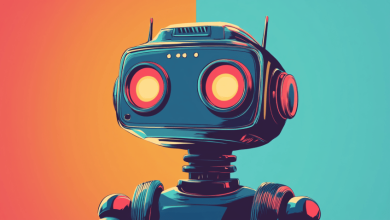How Much Do People Trust AI in 2024?

As artificial intelligence permeates various aspects of people’s lives, understanding their trust in technology becomes increasingly important. Despite its potential to revolutionize industries and improve everyday life, AI comes with a mix of fascination and skepticism. Knowing what the general public thinks about it and how these perceptions may change with use can help others understand the state of AI trust and its future implications.
How aware are people of AI?
The general public’s awareness and understanding of AI influences their trust in this technology. Recent studies show 90% of Americans know a little about it about AI and having some knowledge about what it does. However, some have a deeper understanding and are well versed in AI and its various applications.
This partial awareness leads to familiarity and confusion. While 30% of Americans can identify themselves correctly There are still a significant number of misconceptions in the most common applications of AI. Among the most common are errors and biases.
Many people don’t fully realize that when AI tools make mistakes, the fault often lies with the developers who created the system or with the data the model was trained on, rather than the AI itself. This misunderstanding further exacerbates the trust issues surrounding AI.
Google Gemini, for example, has been criticized for inaccurately portraying historical figures. This was a downfall of the training data, creating an unreliable, biased machine. Despite the high level of public awareness, the trust gap remains wide due to these misunderstandings and the visibility of AI’s failures.
The general perception of AI
Public opinion on AI varies widely. Worldwide, 35% reject the increasing use of it. In the US, the rejection rate is higher, with 50% of citizens opposing its growing role in society.
Trust in AI companies has also declined significantly over the years. In 2019, half of US citizens were neutral towards such brands. However, recent surveys show that this confidence has shrunk to just 35%. Most of their unease about AI companies stems from the rapid growth of their products.
People’s fear of these innovations is growing because they have become so intelligent in recent years. As these tools proliferate, the public believes that their rapid deployment leaves no room for adequate management.
In fact, 43% of the world’s population agrees that AI companies are doing a poor job of managing this. But if the government regulated this heavily, more people would be willing to accept this innovation. They would also think more positively about AI if they saw and better understood its benefits to society. Providing a clearer understanding would improve the public’s perception of its activities.
Furthermore, thorough testing is a crucial factor in gaining public trust. Citizens want companies to rigorously test AI applications to ensure reliability and safety. Furthermore, there is a strong demand for government oversight to ensure that AI technologies meet safety and ethical standards. Such measures could significantly increase public confidence in AI and create widespread acceptance of its use.
The trust of AI in different sectors
According to a Pew Research survey: trust in AI varies greatly by sectorwith observed impacts within each area.
1. Workplaces
The role of AI in recruitment processes is a major concern for many in the workplace. About 70% of Americans are against it companies that use it to make final hiring decisions. This usually stems from a fear of bias and a lack of human judgment. Additionally, 41% of U.S. adults reject using it to review applications due to concerns about fairness, transparency, and potential algorithmic errors.
2. Healthcare
When it comes to healthcare, people’s trust in AI is remarkably divided. At least 60% of the US population would feel uncomfortable if their healthcare provider relied on it for medical care. This discomfort likely stems from concerns about technology’s ability to make medical decisions and the potential for errors.
However, 38% of the population agree that this would improve patient health outcomes. This group recognizes the potential benefits of AI in improving diagnostic accuracy and personalized treatment plans. They also realize that this could improve the overall efficiency of healthcare.
3. Government
Sixty-seven percent of Americans believe the government will not do enough to regulate the use of AI. This lack of confidence in oversight is a critical barrier to public trust, as many fear that inadequate regulation could lead to abuse, privacy violations and unresolved ethical issues.
4. Law enforcement
Public sentiment shows growing concern about the adoption of these technologies. According to Ipsos research, approximately 67% of US citizens cause police and law enforcement to misuse AI. These fears are likely due to the potential use for invasion of privacy and the fear of general implications for civil liberties.
5. Retail
In retail, the inclusion of AI in products has a noticeable impact on consumer confidence. When highlights of AI appear in product descriptions, emotional trust tends to decrease. This makes it less likely that consumers will make a purchasing decision.
How the public experiences AI after it has been used
The use of AI has become a reality for many Americans 27% of American adults use it several times a day. Some of the most common uses include virtual assistants and image generation, but text generation and chatbots top the list. A study by YouGov shows this 23% said they use generative AI such as ChatGPT, and 22% indicate that they regularly use chatbots.
Despite growing concerns about the future implications of AI, the same survey found that 31% of Americans believe AI makes their lives easier. Another 46% of adults under 45 say it improves their quality of life. However, the increased use of these technologies increases concerns.
The Ipsos research shows that one in three people regularly use some form of AI, with 57% expecting more to do so in the future. Although these tools are easy to use, 58% of respondents feel more worried then excited after using them more.
Earning their trust takes time, and most of that involves educational and transparent approaches from companies acquiring AI tools. If there is responsible integration, more and more people will be willing to trust them.
Where does the mistrust of AI come from?
A major source of distrust towards AI stems from the fear that AI could become more intelligent than humans. Many Americans worry that its advances could lead to the end of humanity, driven by the idea that super-intelligent AI could act in ways harmful to human existence. This existential fear is a powerful driver of skepticism and resistance to these technologies.
Another major factor contributing to the distrust is AI’s potential to make unethical or biased decisions. The public is wary of these systems that encourage societal biases and lead to unfair outcomes, especially in politics.
People also fear that AI will reduce the human element in various environments, such as workplaces and customer service. The impersonal side of machine-based interactions can be unsettling. Therefore, it leads to a greater preference for human involvement, where empathy and deep understanding are crucial.
Meanwhile, others are more concerned about AI and data collection. Almost 60% of consumers worldwide think that AI in data processing poses a huge threat to their privacy. The potential for misuse of personal information raises alarms about surveillance, data breaches and the erosion of privacy.
Regardless of these fears, there are ways to build trust in AI. People may be more open to it if they see a commitment to privacy protection. Furthermore, conducting further research into its societal impact and openly communicating these findings can bridge the trust gap. When the public sees a genuine effort to address these concerns, they are more willing to believe that AI can do good in the world.
Building a trustworthy AI future
Generating trust in AI is complex and multifaceted. While many recognize its potential benefits, fears about ethical issues, loss of human interactions, and threats to privacy remain prevalent. Addressing these issues through rigorous testing and transparent regulation is essential. By prioritizing accountability and public education, tech brands can build trust and build a future where society views AI as a useful tool.






